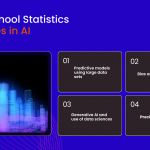Mathematics in Class 7 plays a crucial role in strengthening the foundation for higher classes. The CBSE curriculum for 2020-2021 was designed to make the subject more engaging, logical, and applicable to real life. With a strong emphasis on problem-solving, reasoning, and analytical thinking, the syllabus aims to prepare students for the upcoming challenges of secondary and senior secondary education.
In this blog, we will go through the detailed syllabus, the chapters included, and the skills students develop through this course (Refer).
Key Highlights of the Class 7 CBSE Maths Syllabus (2020-2021)
The 7th Standard CBSE Mathematics syllabus is divided into 15 chapters. Each chapter introduces concepts that build upon earlier learning while gradually leading students toward more advanced problem-solving techniques.
1. Integers
- Understanding addition, subtraction, multiplication, and division of integers.
- Application of integers in real-life contexts like profit & loss, temperature changes, etc.
2. Fractions and Decimals
- Operations with fractions and decimals.
- Word problems based on money, measurements, and daily life use cases.
3. Data Handling
- Collecting and organizing data.
- Graphical representation using bar graphs and pictographs.
- Introduction to probability through simple examples.
4. Simple Equations
- Formation of algebraic equations.
- Solving simple linear equations using the balance method.
- Application in real-life problems.
5. Lines and Angles
- Types of angles and their properties.
- Relations between complementary, supplementary, vertically opposite, and adjacent angles.
6. Triangle and Its Properties
- Medians and altitudes.
- Types of triangles and their properties.
- Pythagoras theorem (introduction).
7. Congruence of Triangles
- Concept of congruence.
- Criteria for triangle congruence: SSS, SAS, ASA, RHS.
8. Comparing Quantities
- Ratios and percentages.
- Profit and loss, simple interest.
- Discounts and applications in daily life.
9. Rational Numbers
- Representation on the number line.
- Standard form of rational numbers.
- Addition, subtraction, multiplication, and division of rational numbers.
10. Practical Geometry
- Construction of different types of triangles.
- Using compass and ruler for geometric drawings.
11. Perimeter and Area
- Surface area and perimeter of squares, rectangles, and triangles.
- Word problems involving practical use of these concepts.
12. Algebraic Expressions
- Terms, coefficients, and operations on algebraic expressions.
- Addition, subtraction, and simplification.
13. Exponents and Powers
- Laws of exponents.
- Using exponents to represent large numbers.
14. Symmetry
- Lines of symmetry.
- Rotational symmetry in figures and objects.
15. Visualizing Solid Shapes
- Understanding 3D objects.
- Nets for building 3D models like cubes, cuboids, and pyramids.
Skills Students Gain from the Syllabus
- Problem-Solving Skills: Through equations, word problems, and geometry.
- Analytical Thinking: By working with data, fractions, and integers.
- Practical Application: Using percentages, profit & loss, and areas in real-life contexts.
- Logical Reasoning: With geometry, symmetry, and congruence-based topics.
Why the CBSE Class 7 Maths Syllabus Matter
The 7th-grade CBSE maths syllabus ensures that students are not just preparing for exams but also developing real-world skills. By focusing on concepts like equations, rational numbers, and geometry, students gain confidence in logical thinking and problem-solving. This syllabus bridges the gap between elementary learning (lower classes) and advanced concepts in higher classes.
FAQs
What are the main chapters in Class 7 CBSE Maths (2020-2021)?
The syllabus includes 15 chapters such as Integers, Fractions & Decimals, Simple Equations, Triangles, Comparing Quantities, Rational Numbers, Algebraic Expressions, and more.
Is the 7th standard CBSE maths syllabus difficult?
Not really. The syllabus is designed to be progressive and builds upon concepts from Class 6. With regular practice, students can easily master it.
How many geometry-related chapters are in Class 7 Maths?
There are 4 geometry-based chapters: Lines and Angles, Triangles and Its Properties, Congruence of Triangles, and Practical Geometry.
Does the syllabus include real-life applications of maths?
Yes. Topics like Comparing Quantities (profit, loss, interest), Perimeter & Area, and Data Handling directly connect with daily life.
How can students score well in Class 7 Maths?
Students should focus on understanding concepts, practicing NCERT exercises, solving sample papers, and applying concepts in real-world situations.
Are rational numbers and exponents new topics in Class 7 Maths?
Yes, students are formally introduced to Rational Numbers and Exponents & Powers in Class 7 for the first time.
Final Thoughts
The CBSE Class 7 Maths syllabus 2020–21 was structured to give students a balance of basic arithmetic, geometry, algebra, and data handling. Each topic plays a vital role in preparing them for Class 8 and beyond. With consistent practice from Kapdec and conceptual clarity, Class 7 students can not only excel in exams but also develop a genuine interest in mathematics.








